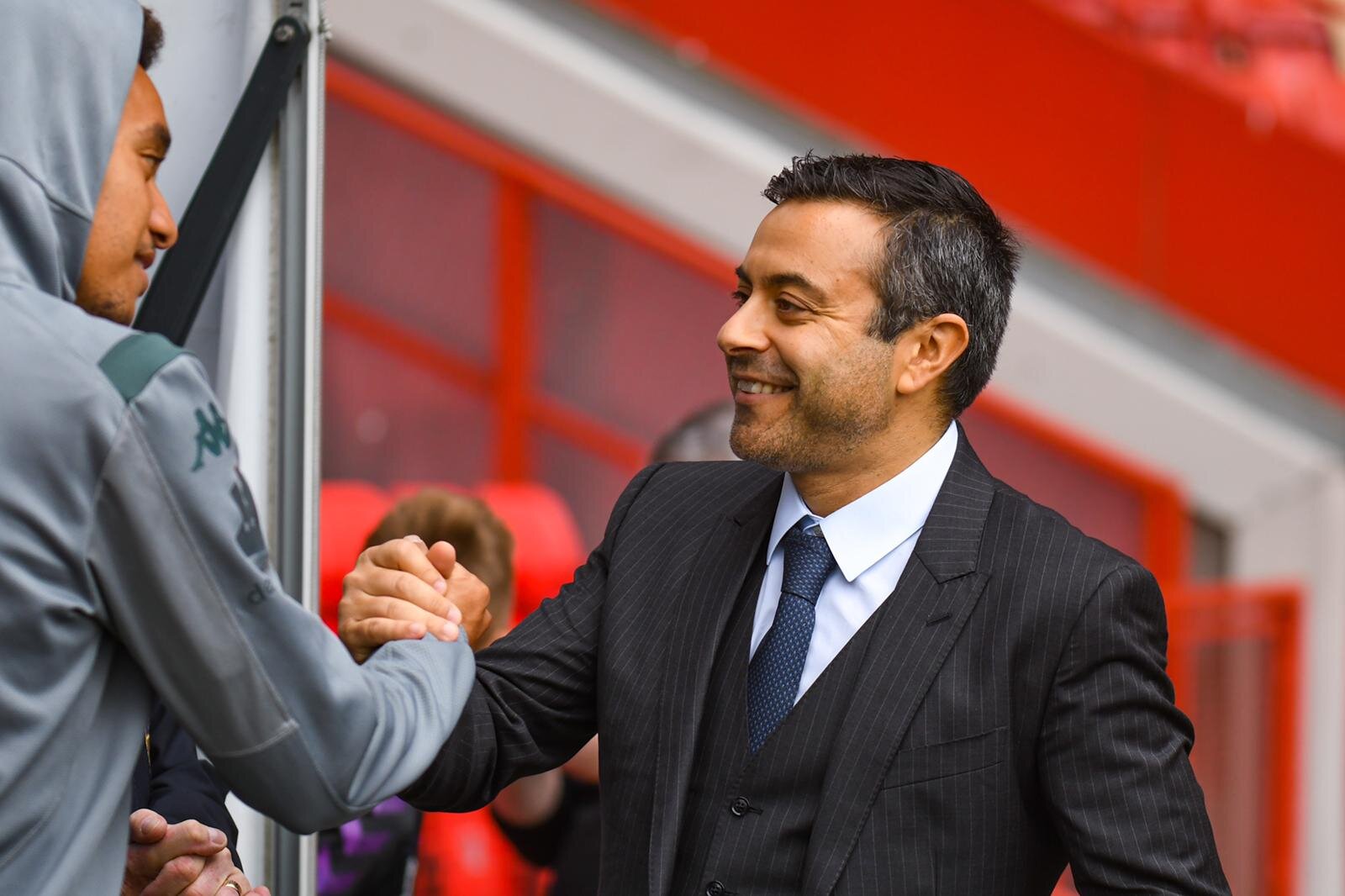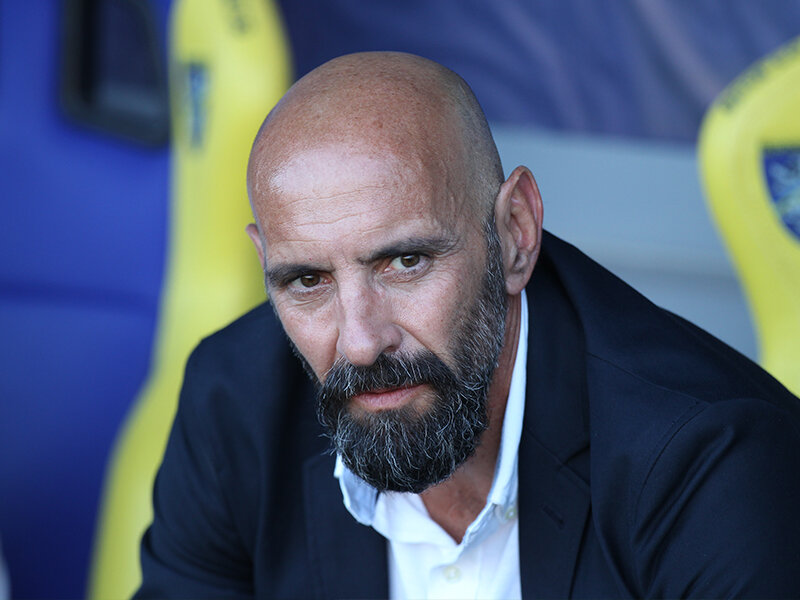
Club Football
Interview: Andrea Radrizzani, Chairman of Leeds United FC
Leeds United Chairman Andrea Radrizzani has a unique background among his peers. Having built his career on savvy investment in sports and media rights, he has extensive experience in starting and growing major international companies in these fields. In 2017, he arrived at Leeds United, first as co-owner and then as sole owner. Here, he talks about his plans to restore the sleeping giant to its former glory.
What has been your club’s approach to reduce the negative impact of COVID-19?
Firstly, we need to focus on the safety and health of everyone associated with the club – from our medical team working with the players and staff, to using our platform to deliver important health messages. Secondly, we need to manage the financial impact. We took early and decisive action and our players and coaching staff graciously agreed very quickly to defer part of their salaries in order to protect jobs at the club and ensure we stay strong for the future.
We are not just a football club. We are part of a community and we want to be out there to provide support in any way we can. Our foundation has done a brilliant job of supporting people who need our help in the local area and I am very proud of that.
In any disruptive situation, there’s always an opportunity. What is the biggest opportunity for football now?
It is a time for us to take stock and to think about how we ensure football can be more robust in the future. That means associations and clubs across the game really committing to the need to be self-sustaining and operating within their means.
Leeds are a historic club with average attendances at Elland Road rivalling those of Premier League clubs. How difficult is it to exploit the strength of your club’s brand in the Championship?
We have made good progress in the areas that are in our control. Our commercial operation is in a strong position, with revenues rising year after year, and we have welcomed a number of big corporate partners since we arrived.
But some elements in the Championship make commercial sustainability a big challenge. For instance, the share of money generated from TV rights is smaller because it is split between 72 clubs. That penalises clubs like Leeds, who are watched by 500,000-600,000 people live on TV, but get proportionately less from the league in TV revenues, because our games are shown on TV more regularly than other clubs.
What are your goals for the club over the next two, and over the next five years?
On the pitch, we have a very clear goal: promotion to the Premier League. Over the next five years, we will continue to build a club and infrastructure capable of succeeding in the world’s most competitive league. As a model, I look at clubs like Brighton & Hove Albion and the success they’ve achieved gradually on a sustainable budget. I want to take a similar approach. When we come through the global pandemic, I believe we will be in a good position for the immediate future and also to build for the longer term.
Why did you decide to invest in an English club rather than, say, an Italian club?
Rather than England, I originally looked at Italy, France and Spain with the idea of taking over a mid-table club with players to develop and a chance to grow. But in a chance encounter with Kenny Dalglish, he told me about Leeds United and how the club was ready for a return to glory. Speaking to people around the club and visiting Thorp Arch [Leeds United’s training ground], I came to fully appreciate the heritage of a club with great potential to move forward, so I decided to become involved. I love challenges and I love to help turn organisations around. The more I learned, the more I was interested.
What is your vision for the club?
I want to help Leeds United return to the level our history and fans deserve. When I came to the club, I gave myself three years to deliver that and my vision remains the same: return the club to its rightful place in the Premier League and make our fans, players and staff proud of their football team. We have everything to do it – a world-class coach, great players and unbelievable fans – so I feel very positive.
How would you describe your management style?
I have a lot of passion, for sure. I like to be ambitious and I share this feeling with everyone at the club. I’m lucky to have a brilliant team at Leeds: from our coach, Marcelo Bielsa, and our football staff, to the players and our operational team led by Angus Kinnear. I believe in them, I trust them to do their work and I am here to empower them and support them to take our club forward.
What makes your club unique?
We recently celebrated our centenary, which gave us a chance to reflect on what the club means to our fans. When you look in particular at the club’s glory days in the 1970s and 2000s, the iconic players who have worn the shirt, the passion of our supporters and Elland Road, there’s so much that makes Leeds United a special football club.
What makes running a football club different from managing other types of businesses?
The history and the following alone are a big responsibility. I need to be careful in my decision-making and maybe not take the same risks I would take if it were one of my other businesses. In some ways, it is the same: building strong infrastructure, bringing in the most talented people and creating a strong, commercially sustainable operation. These are all things I have worked at throughout my career.
How do you evaluate the performance of your club?
The most important thing is what happens on the pitch and building a team that can compete in the Premier League. To support that ambition, we need to ensure we are continuing to grow our revenue each year. We do that by keeping our stadium sold out and building our network of partnerships. In recent times, we have agreed deals with major brands, so that side of the operation is progressing well.
We also have a responsibility to build the club for the future and that is another very important consideration. We have bought back and modernised Elland Road and invested in the academy, which is now the most productive academy outside the Premier League in terms of emerging talent. We have modernised our media operations, modernised the stadium and built a great team on and off the pitch that we believe will continue to take Leeds on for many years to come.
What advice would you give to those running smaller clubs looking to grow and compete at a higher level?
Give everything for your clubs. Be positive. Build for the future and take your responsibilities very seriously because football clubs are special organisations and need to be looked after with care.
Football is not just about money; it’s about assembling the right group of people and players to work together as a team. How important is the aspect of personality in terms of the recruitment process of your club?
For Leeds, we have a history of being “Dirty Leeds” and we actually channel that. We want to play great football and we are doing that but we also need to fight every time we go onto the pitch. All of our boys are willing to fight for the shirt every week and having that character is important to being a Leeds United player.








